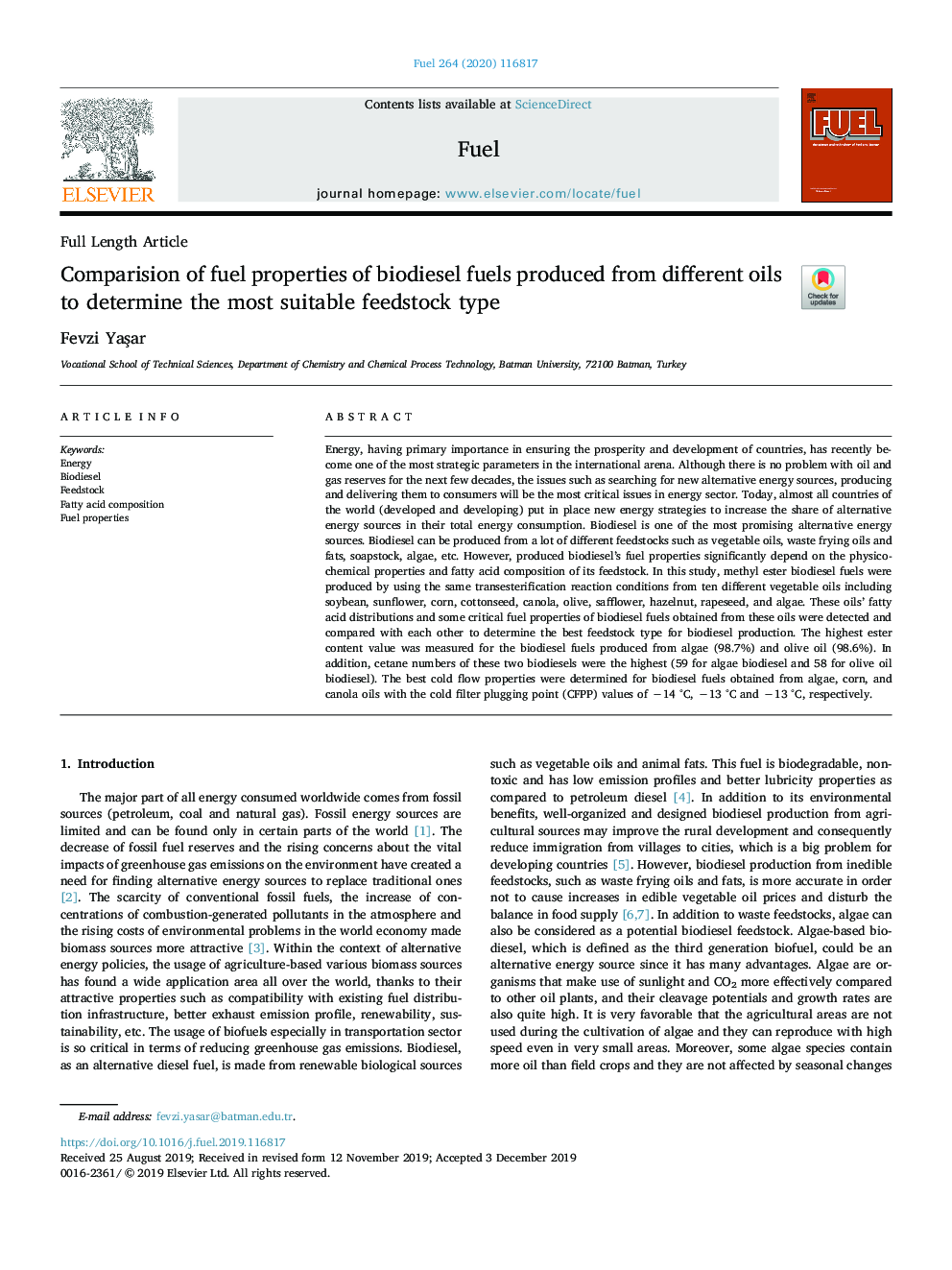| کد مقاله | کد نشریه | سال انتشار | مقاله انگلیسی | نسخه تمام متن |
|---|---|---|---|---|
| 13416271 | 1841308 | 2020 | 7 صفحه PDF | دانلود رایگان |
عنوان انگلیسی مقاله ISI
Comparision of fuel properties of biodiesel fuels produced from different oils to determine the most suitable feedstock type
دانلود مقاله + سفارش ترجمه
دانلود مقاله ISI انگلیسی
رایگان برای ایرانیان
کلمات کلیدی
موضوعات مرتبط
مهندسی و علوم پایه
مهندسی شیمی
مهندسی شیمی (عمومی)
پیش نمایش صفحه اول مقاله

چکیده انگلیسی
Energy, having primary importance in ensuring the prosperity and development of countries, has recently become one of the most strategic parameters in the international arena. Although there is no problem with oil and gas reserves for the next few decades, the issues such as searching for new alternative energy sources, producing and delivering them to consumers will be the most critical issues in energy sector. Today, almost all countries of the world (developed and developing) put in place new energy strategies to increase the share of alternative energy sources in their total energy consumption. Biodiesel is one of the most promising alternative energy sources. Biodiesel can be produced from a lot of different feedstocks such as vegetable oils, waste frying oils and fats, soapstock, algae, etc. However, produced biodiesel's fuel properties significantly depend on the physico-chemical properties and fatty acid composition of its feedstock. In this study, methyl ester biodiesel fuels were produced by using the same transesterification reaction conditions from ten different vegetable oils including soybean, sunflower, corn, cottonseed, canola, olive, safflower, hazelnut, rapeseed, and algae. These oils' fatty acid distributions and some critical fuel properties of biodiesel fuels obtained from these oils were detected and compared with each other to determine the best feedstock type for biodiesel production. The highest ester content value was measured for the biodiesel fuels produced from algae (98.7%) and olive oil (98.6%). In addition, cetane numbers of these two biodiesels were the highest (59 for algae biodiesel and 58 for olive oil biodiesel). The best cold flow properties were determined for biodiesel fuels obtained from algae, corn, and canola oils with the cold filter plugging point (CFPP) values of â14 °C, â13 °C and â13 °C, respectively.
ناشر
Database: Elsevier - ScienceDirect (ساینس دایرکت)
Journal: Fuel - Volume 264, 15 March 2020, 116817
Journal: Fuel - Volume 264, 15 March 2020, 116817
نویسندگان
Fevzi YaÅar,